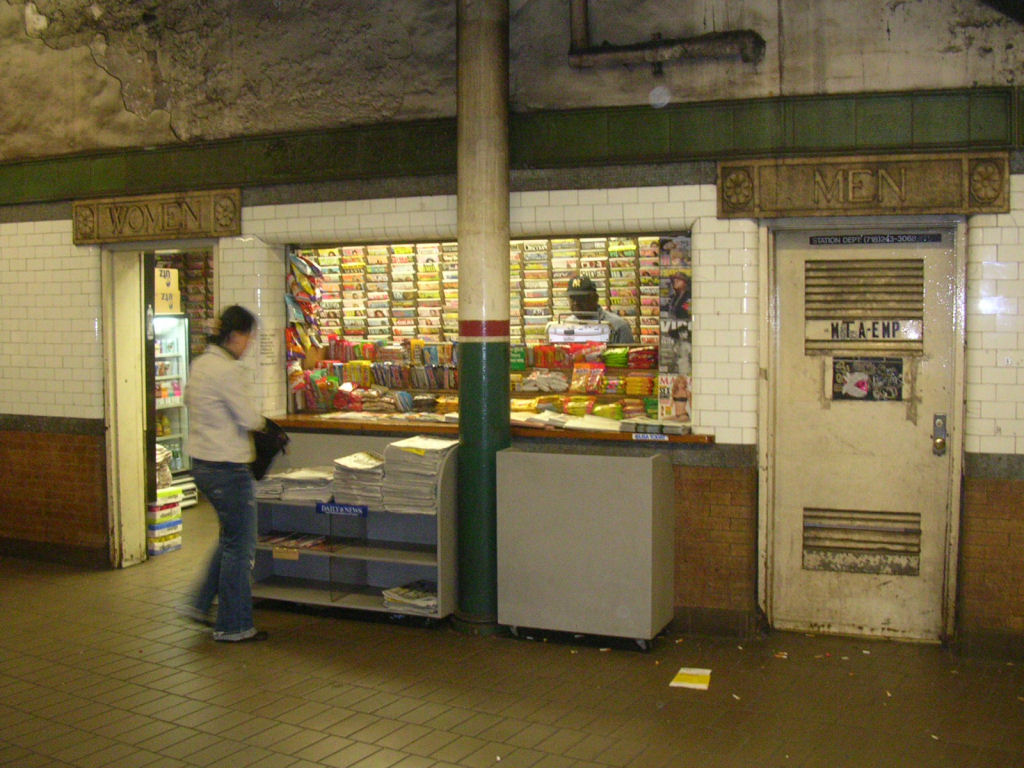 When Jay Walder arrived at the MTA from England last fall, he was supposed to take the reins of an organization that had finally secured some semblance of financial stability. Although New York State had eschewed smarter congestion fee or bridge toll plans, Albany had delivered a comprehensive package of fees and taxes that, while not perfect, should have provided the MTA with enough money to cover its operating deficit.
When Jay Walder arrived at the MTA from England last fall, he was supposed to take the reins of an organization that had finally secured some semblance of financial stability. Although New York State had eschewed smarter congestion fee or bridge toll plans, Albany had delivered a comprehensive package of fees and taxes that, while not perfect, should have provided the MTA with enough money to cover its operating deficit.
As with all things these days out of Albany, however, the gold turned to dust. First, Albany took over $140 million from the MTA’s coffers; then, the state taxation calculations were off by over $300 million; and then a still-weak economy cost the MTA millions in missed real estate tax revenue. It was the perfect storm of fiscal problems, and it has led to a deficit of nearly $800 million for the authority this year.
With Walder at the helm, the MTA has tried to make every dollar count, as he is so fond of saying. Since December, when the scope of the deficit has become clear, the authority has instituted on sweeping package of service cuts that will eliminate buses and trains, reduce the in-station employee headcount and lead to longer and more crowded off-peak commutes. Still, that package resulted in savings of just under $400 million with another $350 million gap looming.
To close that gap, the MTA has searched high and low for inefficiencies. The authority has eliminated nearly $50 million in managerial staffing positions, cut 141 capital improvement projects for a savings of $40 million and renegotiated $17 million in contractor savings. Still, the gap is significant, and before pursuing a politically risky fare hike, the MTA is looking for more internal savings.
Today, Jay Walder makes his case for union sacrificies in the pages of The Post. He writes:
As you can see, I won’t shy away from the tough decisions that are needed to drive down costs at the MTA. We are doing our part, but $800 million is a massive shortfall. If we are to succeed, our labor unions must contribute to the solution.
Before I arrived at the MTA, an arbitrator awarded our largest union 11 percent raises over three years. Our employees work extremely hard and deserve to be well compensated – but that compensation comes with the responsibility to maximize productivity and eliminate waste. The reality is that our labor force costs taxpayers far too much. With families and businesses struggling across the state, it’s time for labor to address outdated work rules, limited employee availability and rising pension and medical costs.
Deficit reduction wasn’t what I had in mind when I accepted this job. But I believe we have a once-in-a-generation opportunity to make long-overdue changes at the MTA. By creating a leaner, more efficient organization, we can restore the MTA’s credibility and position ourselves to make great improvements to our system when the economy recovers.
Walder ends his piece on an upbeat note, but it it was encased in an appeal to politics as well. “Here in New York, where transit is more fundamental to our lives than anywhere else,” he says, “it’s something everyone should be rooting for.”
The MTA CEO and Chairman is, of course, striking the right note, but the unions won’t give in without a fight. In a sense, they’re the last holdouts. The riders are losing service from an organization that is a service providers; employees have been laid off; projects delayed; contracts renegotiated. It’s time for the unions to explore how they can help the MTA save money before we all lose our healthy and vital transit network.



 When Michael Bloomberg upending term limits and ran for a third four-year stint as Mayor of New York City, he did so on a platform of
When Michael Bloomberg upending term limits and ran for a third four-year stint as Mayor of New York City, he did so on a platform of 



 Even as Phase 1 of the Second Ave. Subway moves forward, the Holy Grail of New York City subway expansion plans is still inspiring those who dream of a better mass transit system for the city. Over at his excellent site vanshnookenraggen, Andrew Lynch recently unveiled his incredibly fascinating and thorough
Even as Phase 1 of the Second Ave. Subway moves forward, the Holy Grail of New York City subway expansion plans is still inspiring those who dream of a better mass transit system for the city. Over at his excellent site vanshnookenraggen, Andrew Lynch recently unveiled his incredibly fascinating and thorough 














